QuestionHi Lynne wondered if you would be able to give me some advice, my mare had her foal whilst I was away for the weekend, she would not let the foal suckle and unfortunately no one called the vet, therefore by the time I could get back on Sunday the foal had died, my mare is in distress obviously looking for it even though I have moved her out the stable she delivered in. Is there anything I should be doing to help the mare or shall I get a vet to check her over? Thank You
AnswerDear Lynn,
First, I am really sorry to hear about the death of your foal. A new foal is such a long awaited joy and it is a heartbreak to lose one.
You didn't mention if your mare was a maiden or not. This behavior is not unusual for mares with their first foals. Delivering a foal is stressful and sometimes frightening for the mare. It isn't unusual for a maiden mare to appear to love her foal, lick it and clean it, but refuse to allow the foal to nurse. In a wild horse herd, maiden mares will have grown up watching other mares care for and nurse their foals and have a rough sort of herd support. Many domesticated mares have not been around other mares and foals since being weaned from their dams. In addition, wild horses are sort of selectively bred for good mothering qualities. In the wild, a mare who doesn't feed her foal does not pass her genes along to the next generation. If she doesn't learn, her genes die out.
It is always a good idea to have a mare checked by vet after foaling. Unless you are a very experienced broodmare manager and know the placenta was intact etc, it is a good idea to have her checked. At this point I don't think there is much you can do to help your mare's sense of loss. Being pastured with other hores would be provide some socialization, however, you can look to the future.
You mentioned you moved her from the stable she delivered in, but I don't know if that stable is in your back yard or somewhere else. Without knowing what sort of facility you keep your mare at and whether she is boarded, stalled, pastured or in a pen I'm going to taker a couple of shots in the dark here. If you breed this mare again, you need to keep in mind that she didn't learn anything about nursing a foal the last time. There are some things you can do to help.
I have only missed being present at one of my mares' foalings once, and then I was so close that the foal was still wet when I got out to the foaling area. I have certainly spent sleepless nights thinking the mare would foal any day and she held off a bit, but never has a mare surprised me by foaling unexpectedly. That is a result of watching the mare carefully for signs of imminent parturation. You can ask for help from your vet or someone with extensive broodmare experience.
When my mares begin to make a bag, sometimes weeks before foaling I start paying special attention to the bags of the maiden mares. I wash their teats and bag with warm water several times a day. I feel their teats and do a bit of gentle tugging and handling to accustome them to a little bit of what a hungry foal will do to them. Amoung the indicators of foaling is the change in the color and texture of the mare's mammary secretions. If you actually milk a drop out every day when you think she is near to foaling, you accomplish two important gaols. One is to accustom her to an invasion of a part of her that doesn't usually get handled, the other is to give yourself a good idea as to when she might foal. I don't plan any trips within a month of my mares estimated due dates.
There are many good books out there on mares and foaling. One of my old favorites is "Blessed are the Broodmares". Talk to you vet and look forward to the future. You can hardly blame whoever was around for not calling the vet in your absence. They may not have known there could be a problem. In addition, don't beat yourself up or feel guilty for not being there. Life is a learning experience and there is a lot to learn about horses. Again, sorry for your loss and good luck next time around.
Lynne Curtis Gudes
"Common sense isn't."

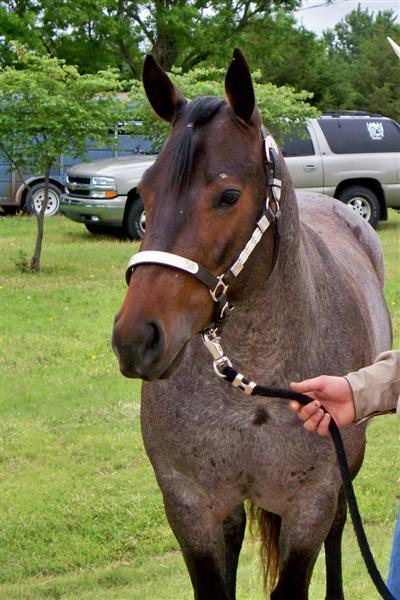 Performance mare breeding
Question
5 yr old mare
Currently have a 5 year old quar
Performance mare breeding
Question
5 yr old mare
Currently have a 5 year old quar
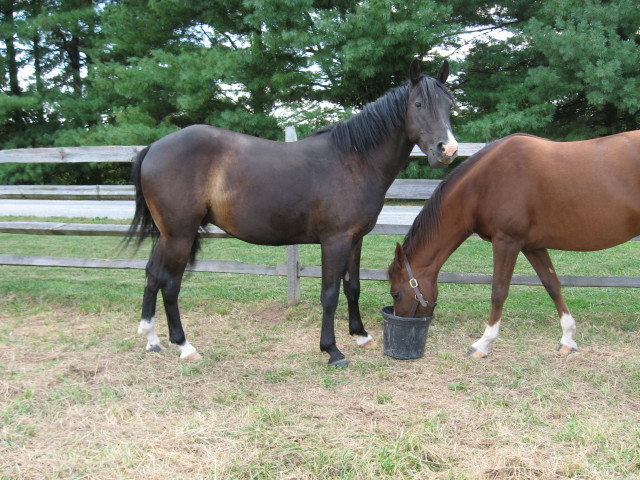 Dark Bay vs. Fading Black
Question
Ace of Spades
Since you specialize in breeding
Dark Bay vs. Fading Black
Question
Ace of Spades
Since you specialize in breeding
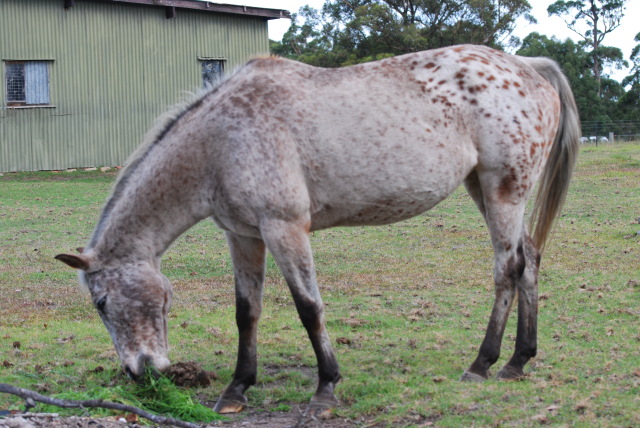 breeding old mare
Question
Star
Im just wondering how old is too old to b
breeding old mare
Question
Star
Im just wondering how old is too old to b
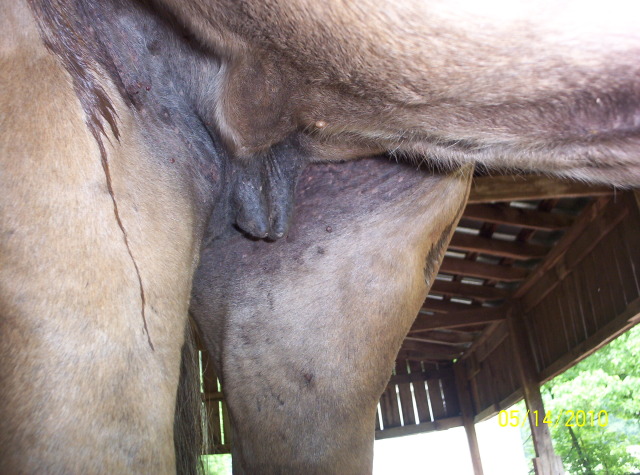 Is my mare pregnant, you think?
QuestionSunshine
QUESTION: Hello Sandy.
I bough
Is my mare pregnant, you think?
QuestionSunshine
QUESTION: Hello Sandy.
I bough
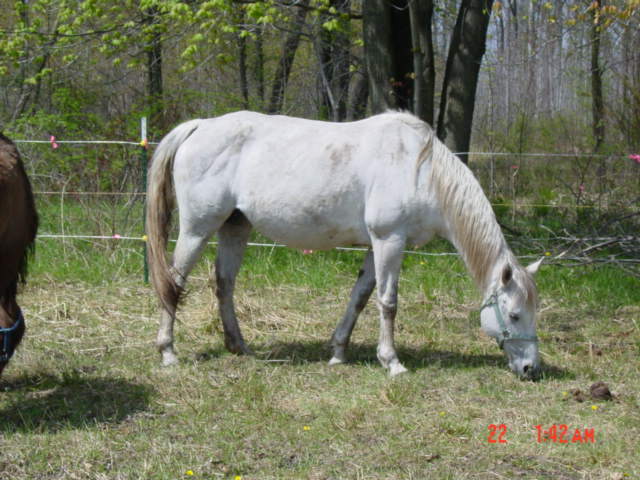 13yr old QH 367 days with foal
Question
Blue in pasture
Hello,
Im new to the foal bi
13yr old QH 367 days with foal
Question
Blue in pasture
Hello,
Im new to the foal bi